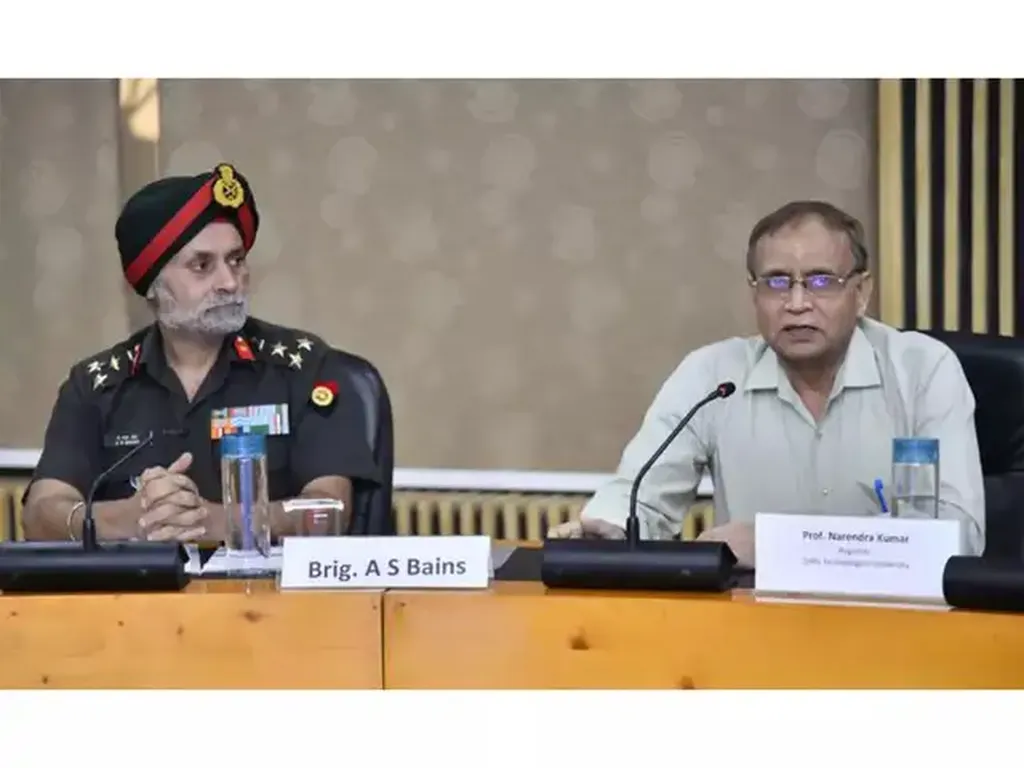The Indian Army has taken a significant step towards fostering innovation and self-reliance in defence technology through a strategic partnership with Delhi Technological University (DTU). The memorandum of understanding (MoU) signed between the two entities underscores a commitment to advancing India’s defence capabilities by bridging military operational experience with academic excellence.
The collaboration will focus on research and specialised courses for military personnel in critical domains such as defence technology, artificial intelligence, robotics, cyber security, geoinformatics, data analytics, and soldier upskilling. In a post on X, the Indian Army highlighted the significance of this partnership, stating, “In a landmark MoU signed between the #IndianArmy and Delhi Technological University, a significant stride has been taken towards advancing #AtmanirbharBharat through innovation and Military-Civil synergy.” The initiative aligns with India’s broader vision of a technologically empowered, future-ready military force, contributing to the nation’s #DecadeofTransformation.
The MoU reflects a broader trend in India’s defence sector, where collaboration between the military and academia is increasingly seen as essential for driving innovation and maintaining a competitive edge. By leveraging DTU’s expertise in cutting-edge technologies, the Indian Army aims to enhance its operational readiness and adaptability in an evolving threat landscape.
In a parallel development, the Ministry of Defence has signed a contract worth Rs 659.47 crore for the procurement of Night Sights (image intensifiers) for the 7.62×51 mm SIG 716 assault rifle and associated accessories. The procurement, classified as a Buy (Indian-IDDM) case, underscores India’s push towards self-reliance in defence manufacturing, with over 51 per cent indigenous content.
The Night Sights will enable soldiers to engage targets accurately up to an effective range of 500 metres, even under starlit conditions, marking a significant upgrade over the currently fielded Passive Night Sights (PNS). The contract, signed with a consortium comprising M/s MKU Ltd (Lead Member) and M/s Medbit Technologies Pvt Ltd, is expected to bolster domestic defence industry capabilities and create opportunities for micro, small, and medium enterprises (MSMEs) in component manufacturing and raw material supply chains.
These developments highlight India’s dual focus on fostering indigenous innovation and strengthening its defence industrial base. The partnership with DTU and the procurement of advanced Night Sights are not just about enhancing military capabilities but also about building a sustainable ecosystem for defence technology development. As India continues to invest in research, upskilling, and self-reliance, these initiatives could set a precedent for future defence collaborations and technological advancements.

